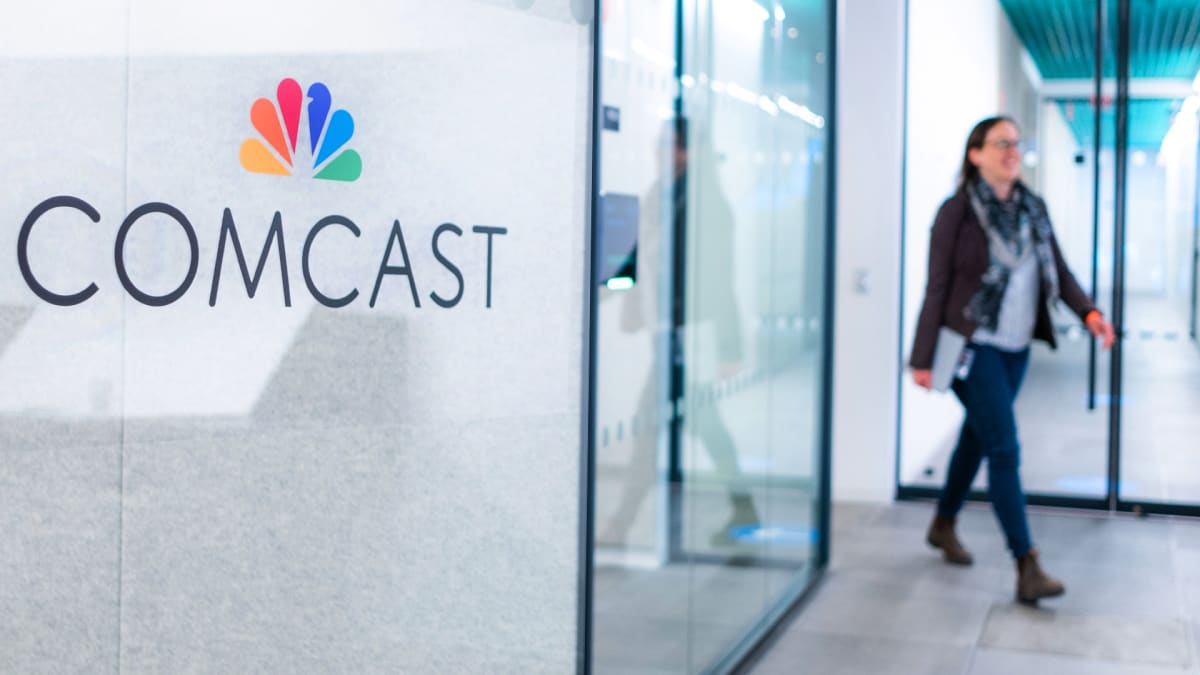
Comcast (CMCSA) keeps stumbling from customer-service scandals to pricing problems and just generally doing things that outrage consumers.
The company routinely advertises a price for its services, then tacks on everything from broadcast television and regional sports fees to modem and cable-box rentals.
In most cases, these added fees are mandatory and are not disclosed upfront. That not only has consumers up in arms, it has caught the attention of President Joe Biden.
DON'T MISS: Comcast Keeps Raising Fees; Here's What Xfinity Customers Will Pay
“The idea that cable, Internet, and cellphone companies can charge you $200 or more if you decide to switch to another provider – give me a break,” Biden said during the State of the Union address.
“Junk fees may not matter to the very wealthy, but they matter to most other folks in homes like the one I grew up in, like many of you did. They add up to hundreds of dollars a month. They make it harder for you to pay your bills or afford that family trip.”
There's a little bit of playing to the base in those statements, but Biden does not have to do much to get people angry at cable and internet-services providers. They're already not thrilled with them and those two categories are routinely the lowest-rated on the American Customer Satisfaction Index.
Comcast is among the lowest-rated large-scale broadband providers rated by the survey, scoring a 66. In fact, that number is one of the lowest scores of any companies in any ACSI category.
That's perhaps not surprising when you realize that Comcast has once again gotten in trouble --this time with the Federal Communications Commission -- for what could arguably be called lying but can certainly be called "making a false claim."

Shutterstock
Comcast Makes a Pretty Big Mistake
Comcast, like all broadband internet providers, has to provide the FCC with coverage data for the federal agency's broadband map. These data enable consumers (in theory) to search for their addresses and see what their internet-service-provider options are.
That's very useful information -- if what Comcast provides to the FCC actually matches its coverage area. That's not the case, according to a story first reported by Ars Technica.
The website figured that out when one potential Comcast customer shared that his home was on the coverage map provided to the FCC but was not actually served by the company. This wasn't a one-off issue either "because it appears Comcast doesn't serve dozens of other nearby homes that it claimed as part of its coverage area," Ars reported.
In the original case, submitted to the FCC by Arvada, Colo., resident Matthew Hiller, Comcast first disputed his complaints, saying that the company did in fact serve his home.
Comcast Fought the Complaint
Being stuck between Comcast and the FCC seems like a horrible place for any consumer to be. The FCC did little more than issue a form email in response to Hiller's complaint after Comcast challenged it.
You and the provider subject to your Availability Challenge have 60 days to attempt to resolve the dispute. If you and the challenged provider are unable to reach consensus within 60 days, then the affected provider will report the status of efforts to resolve the challenge in the online portal. After that time, FCC staff will review all evidence and make a determination either to uphold your challenge or to overturn your challenge.
That's a lot of government speak for a problem the FCC could have verified simply by using Comcast's own website. Comcast admitted that it did not serve the home only after Ars Technica got involved and made the issue a news story.
Mistakes happen -- but it's Comcast's response that's troubling, not its coverage map. Instead of admitting the issue and apologizing to someone who wanted to be a customer, the ISP leaned into its long-held practices and fought the dispute, casting Hiller into the slow hell of the FCC complaint system.
"Anyone can make a mistake, but to opt to defend that mistake rather than correct it is a deliberate choice that flows from the fact that there is everything to gain and nothing to lose from sticking by an inflated claim," Harold Feld, a longtime telecom attorney and senior vice president of consumer-advocacy group Public Knowledge, told Ars Technica.
Feld's concern, however, is bigger than an issue that might affect dozens (or maybe hundreds) of addresses in one state.
"I want to be clear that I am not saying Comcast deliberately inflated its numbers, although if a significant number of challenges are upheld, the FCC should investigate that possibility," he said. "But this does indicate that Comcast was not as rigorous about its initial data claims as it should have been."







